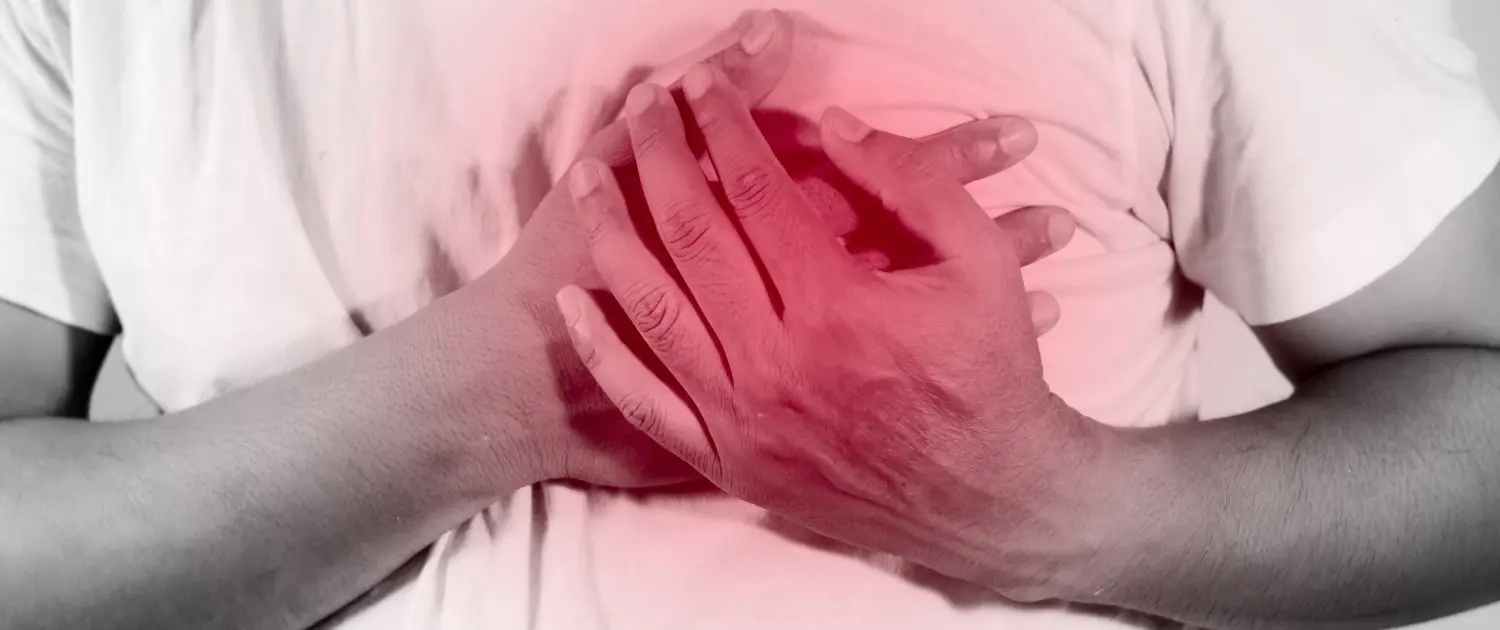What is Heart Failure?
Heart Failure is a significant health issue commonly seen worldwide. Research indicates that over 64 million people globally struggle with heart failure. For more detailed information about Heart Failure, you can read the rest of the article.One of the primary functions of the heart is to pump blood needed by the body. In some cases, due to reasons like weakening of the heart muscles, the heart may not pump the required blood to the body. This condition is referred to as heart failure. Heart failure is analyzed in two classes: acute and chronic heart failure. Acute heart failure is a situation where symptoms appear suddenly and is characterized by severe shortness of breath. Chronic Heart Failure, on the other hand, is a clinical picture where symptoms start slowly and insidiously, worsening over time.
Heart failure is a cardiac condition that arises when the heart cannot pump sufficient and regular blood to the body. This condition usually occurs due to various factors leading to the weakening or stiffening of the heart. Heart failure is a progressive condition and, if untreated, can cause damage to other organs leading to serious complications. Further in the article, you will find answers to questions like “What causes heart failure?” and “What is the treatment for heart failure?”

What are the Causes of Heart Failure?
Heart failure occurs when the heart’s contraction and relaxation functions are impaired, preventing it from pumping enough blood to the body. There are numerous factors that can impair the contraction and relaxation ability of the heart muscle. Some of these are listed below:- Hypertension,
- Coronary artery diseases,
- Heart attack,
- Diseases related to heart valves,
- Myocarditis, i.e., inflammation of the heart muscle,
- Congenital heart anomalies,
- Heart rhythm disorder (arrhythmia),
- Diabetes,
- Obesity,
- Sleep apnea

What are the Symptoms of Heart Failure?
The symptoms of heart failure can vary in severity and may differ individually. In some patients, symptoms may start suddenly, while in others, they may develop gradually. Common symptoms of heart failure include:- Shortness of breath, especially during physical activity
- Constant fatigue and exhaustion
- Edema in hands and ankles
- Dizziness or fainting sensation
- Persistent cough starting at night
- Wheezing
- Abdominal swelling
- Palpitations or irregular heartbeat
- Shortness of breath: Shortness of breath is a symptom that almost all patients with heart failure experience. In the early stages of Heart Failure, shortness of breath may only occur during activities. Over time, it can also occur during rest.
- Tachycardia (palpitations): Palpitations are one of the significant symptoms of Heart Failure. The heart, weakened in contraction and relaxation function, may work more or irregularly to pump the blood needed by the body, leading to palpitations or tachycardia.
- Edema: The appearance of edema, initially in the feet and legs, is one of the symptoms of heart failure. As the disease progresses, swelling can also occur in the abdominal area due to fluid accumulation in the body.
- Weakness: Due to the heart’s inability to deliver sufficient oxygen to tissues and cells, Heart Failure can manifest itself with complaints of easy fatigue and weakness.
- Cough: Heart failure can also lead to fluid accumulation in the lungs, resulting in a cough and/or wheezing.
- Loss of appetite: In heart failure, as oxygen-rich blood cannot be transported to tissues and organs, most organs are adversely affected. Fluid accumulation in the stomach and liver can lead to loss of appetite and nausea.
Hypotension in Heart Failure
In heart failure, as the heart does not pump enough blood, changes in blood pressure can occur, leading to low or high blood pressure conditions. Symptoms of low blood pressure may include dizziness, lightheadedness, fatigue, cold sweating, and pale skin. Hypotension associated with heart failure is a medical condition that affects the patient’s health and requires treatment.Stages of Heart Failure
After the diagnosis of heart failure, staging can be done according to the severity of the disease. Staging is important in terms of treatment approaches and prognosis. The stages of heart failure can be listed as follows:- Stage 1: Stage 1 heart failure is a period where no symptoms are observed during normal physical activities, but there is a risk of heart failure.
- Stage 2: In stage 2, discomfort may occur during physical activity and can improve with rest.
- Stage 3: In this stage, the patient may feel normal during rest and inactivity, but symptoms may start during the slightest activity.
- Stage 4: Symptoms start immediately during any activity and do not improve even with rest. The life expectancy in stage 4 heart failure can be shorter compared to other stages.
Congestive Heart Failure
Congestive heart failure is a term used for heart failure disease. In addition to the heart’s inability to pump enough blood, this condition can also lead to damage in other organs. In congestive heart failure, not only heart-related issues but also fluid accumulation in the lungs or other tissues can be observed.Heart Failure Treatment
People diagnosed with heart failure may wonder “What is good for heart failure?” While some lifestyle changes can help manage symptoms of heart failure, medical methods are employed for treatment. Depending on the patient’s condition and the stage of the disease, various heart medications, vasodilators, blood pressure drugs, or diuretics may be used. Treatment for fluid accumulation in the lungs due to heart failure, also known as pulmonary edema, includes medication and supplemental oxygen therapy. In more advanced cases, heart support devices or heart transplantation may be considered. The symptoms of Heart Failure can be controlled with early diagnosis and treatment. The main goal in the treatment of Heart Failure is to alleviate symptoms and improve the patient’s quality of life. The main treatment procedures for heart failure are as follows:- Adopting a healthy lifestyle: Adopting a healthy lifestyle in the treatment of Heart Failure can help alleviate symptoms. It is advised for the patient to avoid harmful substances like tobacco and alcohol, exercise regularly as recommended by the doctor, and lose weight if overweight.
- Medication: In Heart Failure, a specialist doctor may prescribe medications aimed at strengthening the heart muscle and preventing fluid accumulation in the body.
- Surgical treatment: If positive results are not obtained from the above treatments, the specialist doctor may resort to surgical methods such as the installation of a pacemaker.
Life Expectancy of Patients with Heart Failure
Heart failure is a serious condition that requires treatment. If untreated, it can lead to life-threatening consequences. The life expectancy of heart failure patients varies based on individual data and the stage of the disease. For instance, the life expectancy in the final stage of heart failure may not be the same as in the initial stage. Early diagnosis and correct treatment methods can prolong both the life quality and lifespan of patients. It is crucial for heart failure patients to maintain constant communication with a cardiology specialist and adhere to the recommended treatments.What Should People with Heart Failure Do?
Since heart failure is a critical illness, good care is essential in addition to medical treatments. Particularly, the support and care of family members are vital in making living with this disease more manageable. Some general recommendations for people with heart failure are:- Regularly taking the medications prescribed by the doctor and not neglecting routine check-ups.
- Following a healthy diet plan and paying attention to weight control.
- Limiting fluid intake to reduce the risk of edema.
- Performing light exercises to increase muscle strength and energy levels.
- Quitting smoking and alcohol consumption as they can worsen the symptoms.





